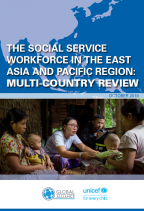From Supervision to Organisational Learning: A typology to integrate supervision, mentorship, consultation and coaching
Supervision is recognised as one of the major determinants of the quality of service to social work clients, the advancement of professional development and social workers’ level of job satisfaction. However, educational and supportive roles of supervisors have been constrained by administrative obligations. It is envisaged that the future path of supervision will be a new form of organisational learning. This paper aims to integrate supervision with three other kinds of organisational learning: mentorship, consultation and coaching.

